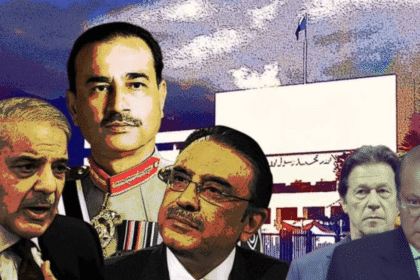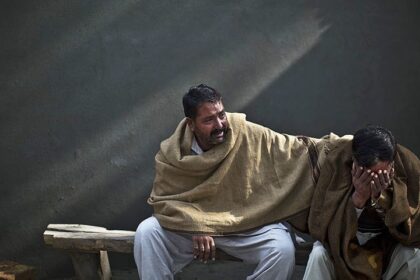Fifty-seven attacks in 48 hours in Balochistan and KP. That was a figure provided by the Khorasan Diary on the 16th of March. The slew of attacks came after Tehreek-e-Taliban Pakistan (TTP) announced a new spring operation, “Khandaq,” targeting security and governmental officials. On the 11th, the Baloch Liberation Army launched a daring attack on the Jaffer Express train, taking hostage more than 380 victims before the tactical brilliance of Pakistan’s aviation and special forces averted greater tragedy. On the 28th of February, a suicide bomber assassinated Mufti Hamidul Haq, leader of Jamaat-e-Ulema (S) and head of the notorious Jamia Haqqania Madrassa. Within less than a month, a controversial but much-loved scholar, Mufti Munir Shakir, was assassinated on the outskirts of Peshawar. Moreover, curfews have been imposed in South Waziristan and Tank districts, given ongoing law and order situations due to TTP. The security situation is clearly deteriorating, with daily attacks against security officials, local religious and social leaders, and government assets occurring.
A situation that one would expect to provoke a strong reaction across the political spectrum, with parties and the public prioritizing reversing the security decline and supporting measures against militant groups. That hasn’t happened. Come the security apex committee, and PTI decides to skip proceedings, citing the incarceration of Imran Khan as the reason for non-attendance. Protests against the curfews in South Waziristan were organized. Across the board, public and political opinion seems not to be in favor but rather in direct opposition to any form of military or kinetic operations.

Choruses of “dollar war,” deliberate destabilization by the establishment, or being an elaborate military game to instigate conflict with Afghanistan abound. Going back a little, between 2022-24, we saw dozens of peace marches organized by the public in opposition to both the terrorist threat and any operations. From the most recent but bloody march in Bannu to the one in Swat in 2022, a common refrain was that people don’t want to see militancy and the horrors of an operation. Indeed, this is a common talking point of the Pashtun Tahafuz Movement (PTM); militants and the army are both ruinous to peace; a kinetic operation will lead to suffering, and thus, both—but especially the military—need to leave.
All such intentions and fears are understandable. Who wants conflict? Or to feed an elaborate geopolitical game hell-bent on sustaining the Indus military complex and the avaricious rentier state? Yet, in positions for peace and avoiding conflict, the notion that keeping one’s head in the sand will help make the war disappear, or that abstract political processes will bring security, is based on delusion and dishonesty.
Militants in the Pakistan-Afghanistan region aren’t puppeteers dancing on the strings of some faceless intelligence agent but rather autonomous groups with their own distinct identities and goals. The TTP and separatist groups have been around for decades now and have a self-sustaining narrative and discourse that their commanders and foot soldiers believe in. Thus, the militias will fight to achieve their objectives regardless of whether kinetic operations are launched or not, adapting to the circumstances and public and state responses. This is abundantly clear during the time between 2021-2023. No major operation was launched after Zarb-e-Azb—Radd-ul-Fasaad focusing on small-scale IBOs instead—and the situation continued to deteriorate. TTP used the period of ceasefires and peace negotiations under the Khan and early Shehbaz governments to build up its organization and area of influence, with help from the Afghan Taliban, and launched increasingly deadly and frequent attacks. The entirety of southern KP is now just precariously under government control.

From just the year 2024 alone, 754 security personnel were killed, a figure only eclipsed in 2009 when Swat fell to the Taliban. Yet, even as militants attack and extend their range and frequency, major political parties like PTI and JUI-F, socio-political movements like PTM, and the majority of the public oppose the large-scale kinetic and cross-border operations required to uproot militancy and ensure basic security. Why, then, do so many sections and personalities oppose operations?
It comes down to believing in certain premises that make people advocate for such bad policies. One premise is that large-scale military operations are done to extract geopolitical rent; Pakistan engages in a war against “radicals,” and the United States forks over cash and aid. Yet this understanding is dangerously outdated; America, since Biden’s time, has been wrapped up in the war on terror, is out of Afghanistan, and, most importantly, under Biden and especially Trump, seeks to pivot America into a new Cold War against China. Battles against local militants will be fought primarily with Pakistani blood and treasure. Again, with the shutdown of USAID, we don’t see a shutdown of militant factories.
Secondly, military operations render untold destruction and inflict misery on the locals. This is the fact that motivates the vast majority of opposition to military kinetic operations. Yet, in a certain sense, opposition now will bring even more misery later. Militants are already increasing their attacks and infiltrating new areas. Not having operations now just means delay, because as the state becomes defensive and static, TTP and other groups will press for expansion until a conventional response is eventually inevitable. More, not less, would be displaced, which can also be seen historically. Militants were allowed to take over FATA and Swat due to prevarications on kinetic operations and cries against “war.” The result was millions displaced when those areas had to be finally cleared out, IDPs suffering to this day. A recent example is Kurram and Parachinar. Decisive action in the initial days was delayed and postponed, and the result now is large-scale operations displacing entire villages in lower Kurram.
There is a pernicious notion that peace talks, not kinetic operations, are the way forward. Propagated mostly by figures associated with PTI and religious parties, such policy advocacy seems to ignore Pakistani history with insurgencies more than anything else. The Sararogha agreement with Baitullah Mehsud, the Malakand agreement with the Swati Taliban, the peace process before Zarb-e-Azb, and even the most recent peace talks show the futility of this route. Militants see this as a sign of weakness, and religious jihadists wouldn’t be content with living under a system that does not reflect their ideals. Only after large-scale operations was militancy reduced. Something of that nature is required today as well. Finally, a conspiracy theory in popular credence has the establishment orchestrating everything for institutional gain. Yet spooks who couldn’t control yesterday’s political allies can’t be granted competence in simulating an entire conflict space. Such simplified narratives might allow a person to escape nuance but not the boom of a suicide vest.

The Inevitable Choice
The public and political parties thus face a choice: either continue advocating for bad policy or adopt a course correction and support military operations now rather than the inevitable later, when the fighting reaches mainstream cities like in the late 2000s and early 2010s. To appease and prevaricate now is to condemn millions more to years of conflict. To quote Winston Churchill on Neville Chamberlain’s policy of appeasement and avoidance of war against the Nazis:
“You were given the choice between war and dishonor. You chose dishonor, and you will have war.”
















